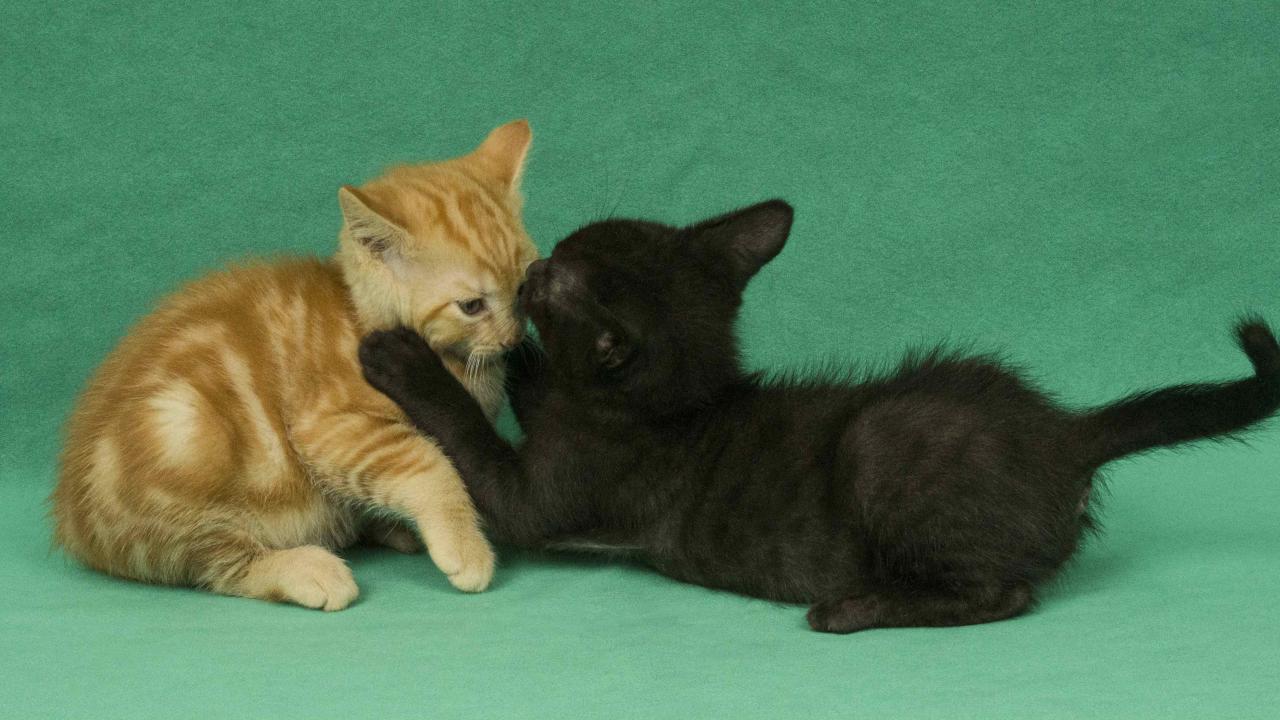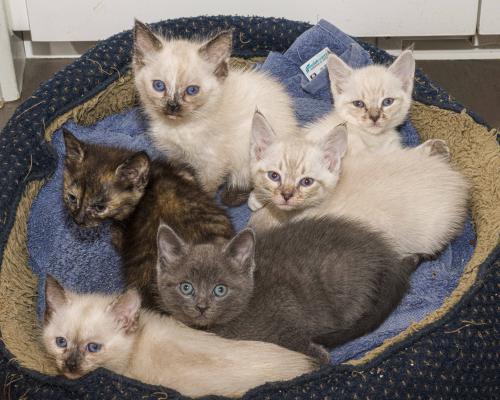
Antiviral Discovered to Speed Recovery and Reduce Corneal Disease in Kittens with Herpesvirus

A recent clinical trial conducted by the UC Davis School of Veterinary Medicine has shown that famciclovir, an antiviral used to treat feline herpes, hastens recovery in kittens with infectious upper respiratory disease (IURD). The results of the research, published today in the Journal of Feline Medicine and Surgery, also indicated that the drug may also reduce corneal disease in some of these kittens.
Ocular manifestations of IURD are common in kittens, especially those in multi-cat environments such as shelters and rescues. Many infectious agents are involved, but one of the most common is feline herpesvirus. While quarantine, vaccinations, and reduced crowding are often used to control IURD, use of antimicrobial agents is also indicated.
The antibiotic doxycycline is an established and common treatment method. This study looked at the addition of famciclovir to doxycycline in 373 kittens with ocular disorders associated with IURD.
Three age groups of kittens and two disease severity groups—mild and severe—were randomly assigned to receive doxycycline and a placebo or doxycycline and famciclovir over the course of three weeks. Kittens with mild disease receiving famciclovir reached full recovery 4-5 days earlier than kittens receiving only doxycycline, and significantly fewer kittens on the antiviral drug developed corneal disease.
Lead authors Dr. Karen Vernau and Dr. David Maggs noted that earlier recovery leads to more availability for shelters to care for other kittens and increases the odds of successful adoptions, as younger kittens are much more likely to get adopted faster.
Due to its large number of participants, the study will likely spawn additional research opportunities.
“Because we had so many kittens and looked at their growth every day, we noticed potential for side projects,” said Dr. Vernau. “Some of these kittens had hypothyroidism, ringworm, and other conditions we can study.”
Vernau noted that the COVID-19 pandemic caused a major challenge during this study by affecting the abilities of shelters, rescues, and fosters to provide care. However, two of these groups—the Orphan Kitten Project (run by UC Davis veterinary students) and Yolo County SPCA—took initiative to keep the project moving forward.
“With many shelters closed during that time, those two groups did a tremendous amount of work caring for an overabundance of homeless kittens,” Dr. Vernau said. “This clinical trial could have easily been shut down, but the school’s partnerships with these rescues, as well as animal-focused organizations like Maddie’s Fund and the Orphan Kitten Club, were paramount in completing this study. I’m so proud of these teams working together to make it happen.”
# # #
The authors would like to thank the UC Davis Center for Companion Animal Health, Maddie’s Fund, the Orphan Kitten Club, and the National Institutes of Health for financial assistance with this research, as well as supplemental assistance from Nestle Purina.
